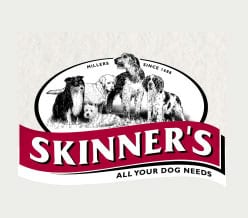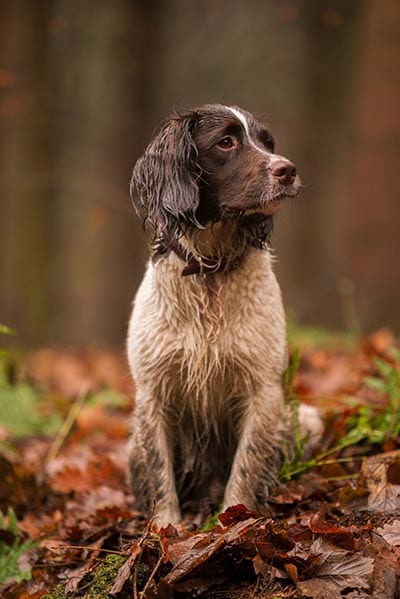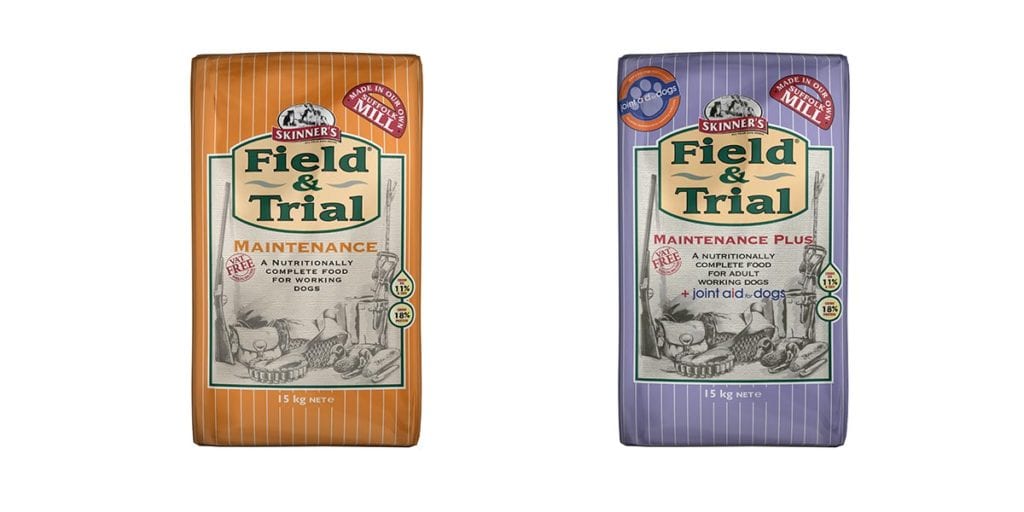The Good Gundog Feeding Guide - Part 3

Skinner's Pet Food
Out-of-season management
Written by: Dr Jacqueline Boyd, BSc (Hons), MSc, PhD, PGCHE, CHES, FHEA, MRSB. Nutritional Consultant, Skinner’s Pet Foods

Game season is well and truly over. Wildfowlers have hung up their waders until September and the dogs have had a well earned rest. Now it’s time to reflect and think about gundog preparation in the close season.
Whether it be days in the field with friends or a challenging retrieve, we need to plan and prepare. How can we get the dog back up to scratch and iron out all those problems which crept in as the season progressed?
Once a gundog, always a gundog
For some lucky dogs, the close season just means a slight alteration to their daily activities. Some dogs continue to work daily and cover similar amounts of ground as working colleagues on the shoot ground/estate. For these dogs, often their diet needs little alteration as their energy output and therefore requirements remain similar.
However, many gundogs in the close season revert back to full-time family pets, have other disciplines to participate in (such as tests, scurries, obedience, agility) or have other roles out of season, perhaps even maternity leave!
In these cases, nutrition and management can help to ease the change and support the health and performance of your dog.
Taking a break
For some dogs the close season is a total rest period but gundog preparation is important. Historically, some dogs were totally kennel confined out of season. This resulted in a drastic reduction in their energy requirements but potentially also in their overall health, condition, muscle tone and fitness.
Resting is essential and for some dogs a “holiday” at the end of a hard season is well deserved. This helps the body repair and regenerate from any minor injuries and gives a chance for both physical and mental recuperation. (Read tips on gundog first aid in the field here).
Prolonged rest with restricted activity might not be ideal. Keeping some level of physical exercise and conditioning will help maintain a degree of fitness until serious conditioning is needed in the run-up to the next season.
Walking, training and swimming are all useful ways to keep both your dog’s body and mind active. As the level of energy output is likely to have been substantially reduced out of season, changing the nutrition accordingly can be critical to support the resting period. It can also minimise the risk of weight gain.
Depending on the dog, the close season combined with reduced intensity, frequency and duration of activity means that fewer calories are needed. There is not the same level of metabolic output with regards to protein turnover and other nutrients either. Therefore a diet with reduced levels of key nutrients might be useful.
Field and Trial Maintenance (or Maintenance Plus, which has an added joint aid supplement) can be a great option out of season. It supports day-to-day activity without providing excess amounts of energy or protein that could result in weight gain.

Other jobs including breeding
Some dogs change their roles out of season and remain very active. Some may have different disciplines or different environmental challenges (increased temperatures for example). Dogs taking part in tests, scurries, agility and flyball etc. remain active. However, less duration to their activities and a review of their nutrition to support “short-burst” activity might be in order.
Typically, the level of carbohydrate is increased in the diet in these situations and the level of fat (which is critical for prolonged energy output) is decreased. A typical swap for these dogs might be from Field and Trial Superior, to Field and Trial Crunchy for example.
For those dogs looking at parental duties, nutrition is critical for gundog preparation. Many bitches will benefit from a good nutritional plane both in the run up to mating and after the mating itself. It’s also important to not forget fuelling our stud dogs well. Good nutrition means an ability to both perform and be fertile.
This also applies for our bitches. A bitch will typically only come into season when the environmental conditions are ideal; this includes nutrition and especially their body fat levels. That is not say they should be fat, but rather they need an adequate level of reserves to support all the necessary hormone changes and maintenance of a pregnancy (as well as the ovulation of quality eggs).
Once pregnancy is confirmed and from about week five of pregnancy, a gradual increase in both the amount fed and the meal frequency is useful. You can swap to a high quality, energy dense food such as Field and Trial Puppy or Field and Trial Superior. Either of these will support lactation output after whelping.
Manage and monitor in close season
Even out of season it’s worthwhile monitoring body weight, body condition and the amount fed. We don’t want “resting” dogs to gain lots of weight as that might be difficult to shift in the run up to the next season.
If you are transitioning to a different food, do so gradually over a period of about seven days to allow your dog’s digestive system to adapt. Equally, keeping a level of physical activity and conditioning will make the transition to increased activity easier for next season.
If you would like individual nutritional advice for your dog, the nutrition team at Skinner’s would be pleased to help you. View the whole series on our blog here.

